Ants in the garden are the cause of headaches for many gardeners. However, are ants simply common pests or do they have a bigger role in the ecosystem?
This article will contain the different advantages and disadvantages of having ants around. It will also tackle the proper way to get rid of overwhelming ant populations without harming them and their surroundings.
- Related article: Ants on Plants
Advantages of Ants in Gardens
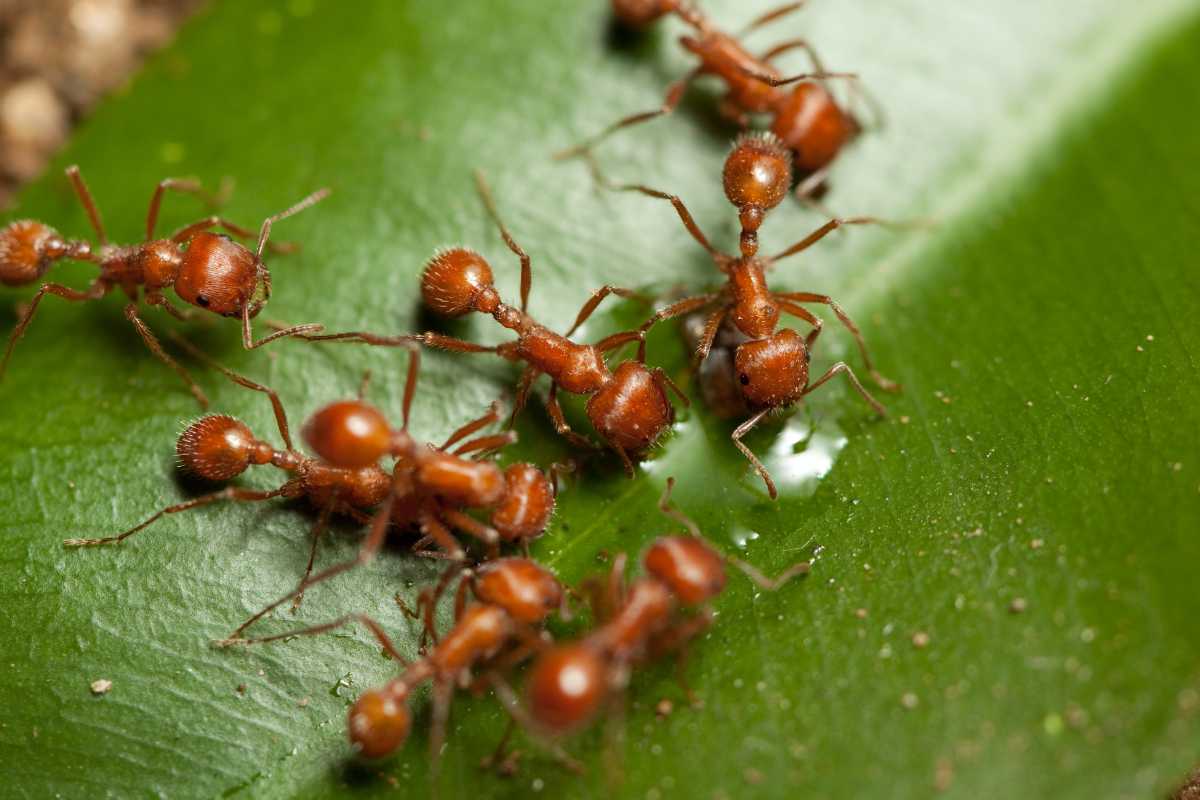
Should you preserve ants in your garden? Here are the advantages of having them around:
1. They Prey on Harmful Insects
Ants eat many harmful insects that can infest your garden such as caterpillars, fleas, and termites. Ants provide natural pest control among other benefits.
They also consume insect eggs, which is especially beneficial since it stops insect populations from spreading and damaging your garden as well.
2. They Are Hardworking Decomposers
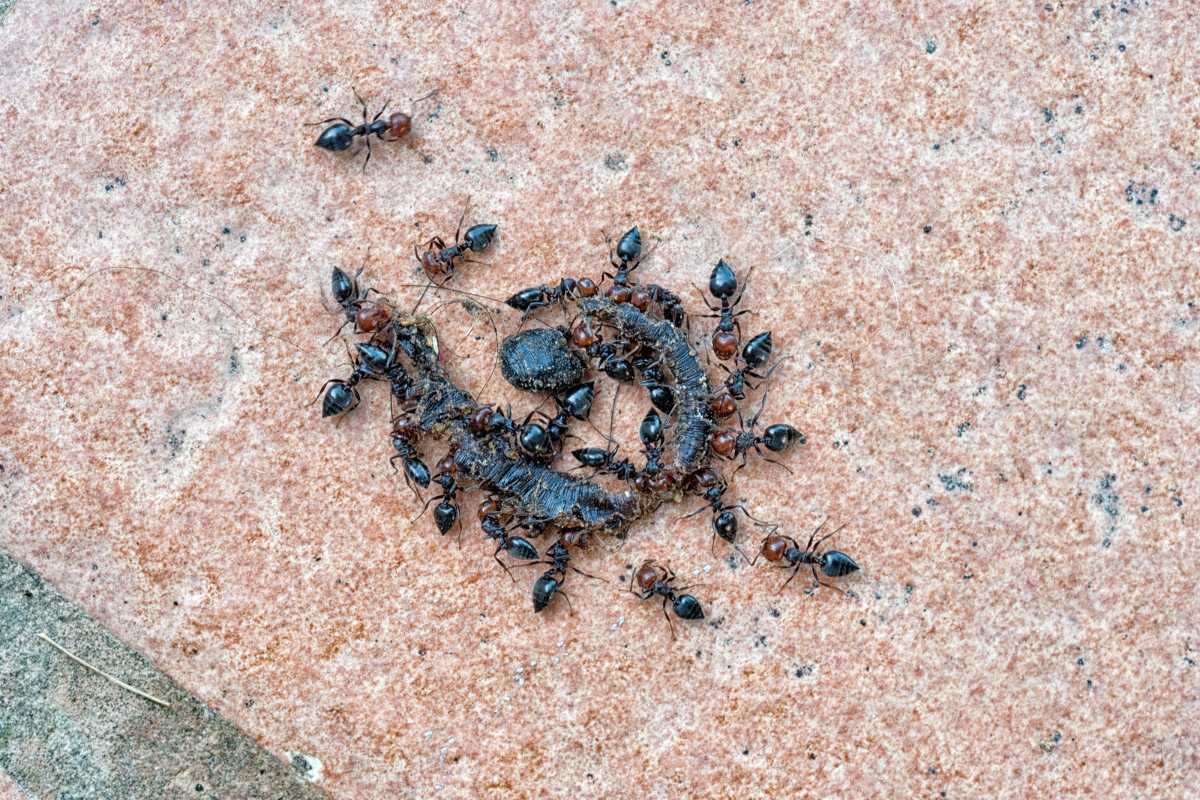
Ants are very hardworking decomposers. In fact, they speed up the natural decomposition process of dead insects, dead animals, and other organic matter by simply feeding on them.
There are also carpenter ants which get their name from the way their nests are built. This specie of ant excavate dead or diseased wood and make tunnels inside.
By tunneling their way through the wood to create nests, carpenter ants start off the decomposition process. Keep in mind that a carpenter ant bite is quite painful so you would not want to risk getting bitten.
The tunnels that they dig aid smaller decomposers, such as bacteria and fungi, to finish decomposing the wood.
3. They Aid in Pollination
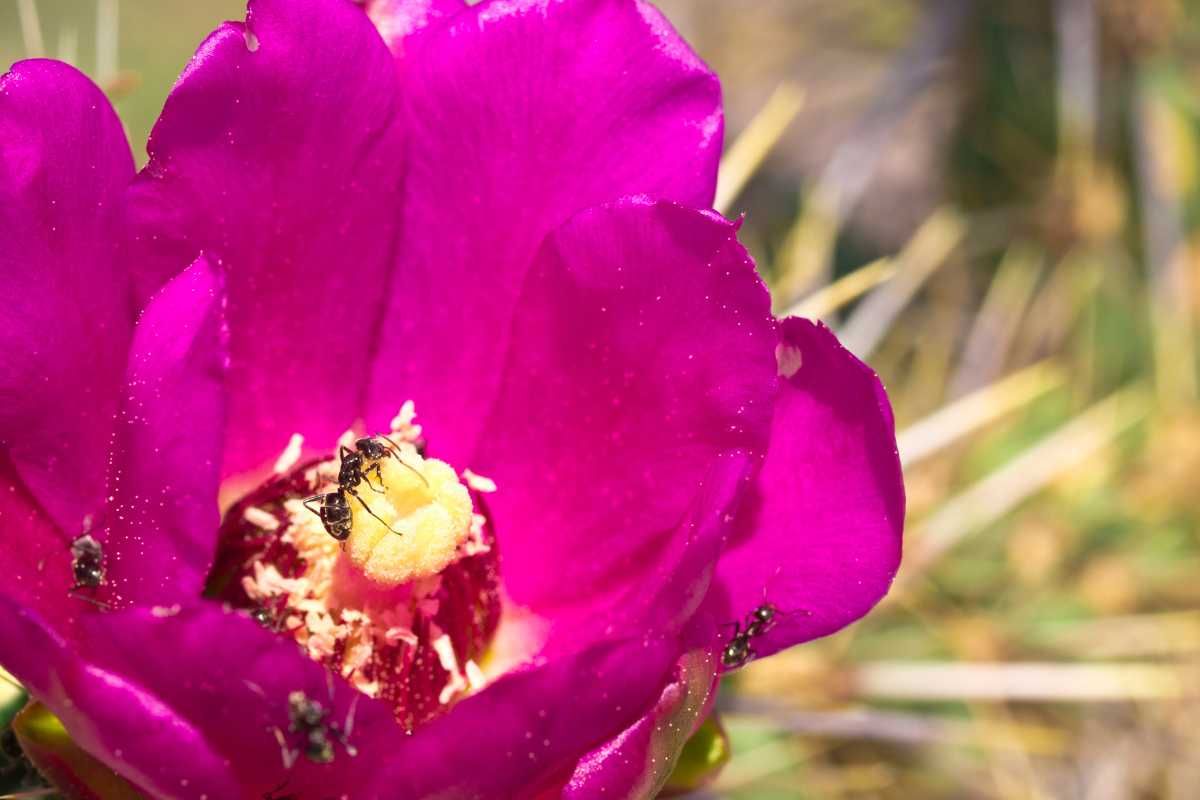
Ants are able to pollinate as they move from plant to plant in search of ant food. They are also very efficient in spreading seeds as they feed on the outer shells but leave the inside intact, dispersing it effectively to the garden soil.
4. They Help Improve Soil Quality
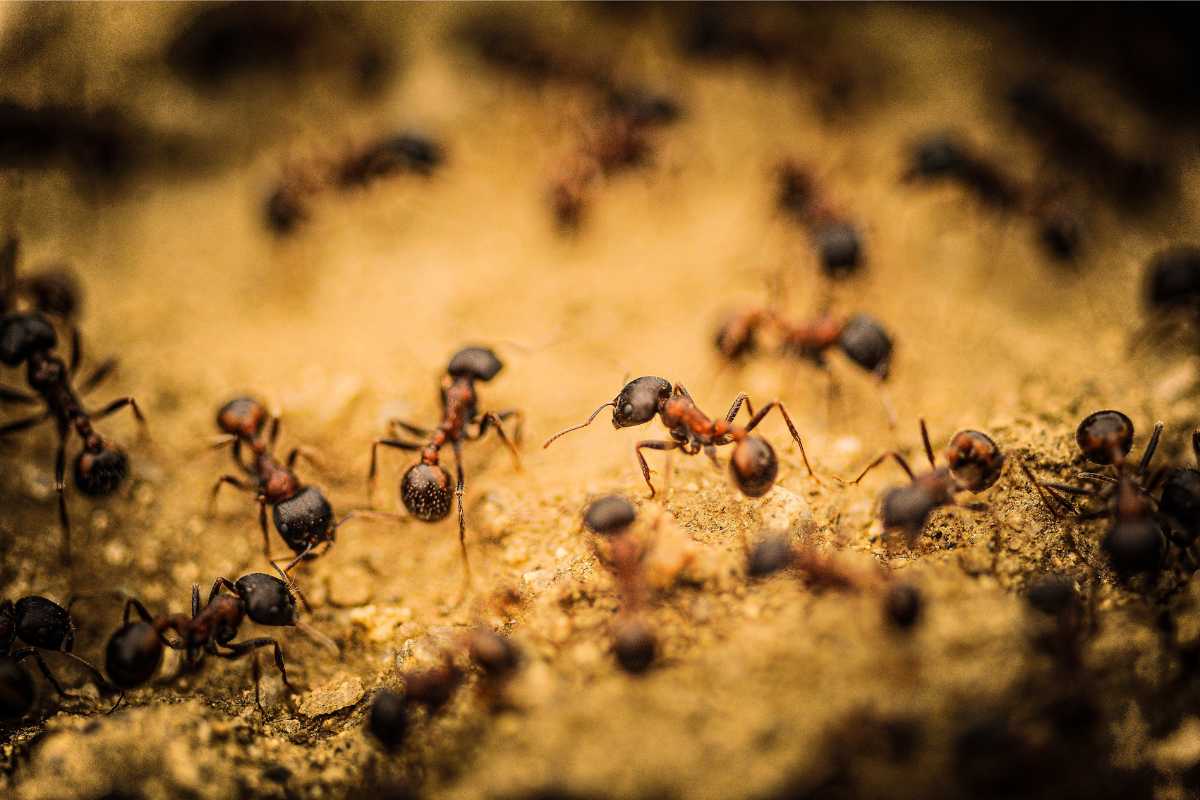
Ants improve soil quality, as they dig tunnels in the ground to build their nests. This process aids soil aeration, allowing oxygen and water to permeate into deeper layers and reach plant roots much more efficiently.
With their activities, they also bring pebbles to the surface, which makes the soil finer-grained.
Ants also improve fertility, as some of the insects and plant leaves they bring into their nests end up decomposing and enriching the soil with important nutrients.
As a vital part of the ecosystem, they distribute nutrients throughout the garden soil and help in carrying out other natural processes.
5. They Aid in Ecosystem Diversity
Ants are part of the natural food web and as much as they prey on smaller insects, they are also the food of bigger predators such as birds, frogs, and mammals.
The presence of ants will naturally attract predators to thrive in your garden. This will improve the area’s diversity and ultimately benefit the whole ecosystem.
Disadvantages of Ants in Gardens
Have you had enough of ant populations in your area? Here are the disadvantages of having them around:
1. They Can Aid in Aphid Infestations
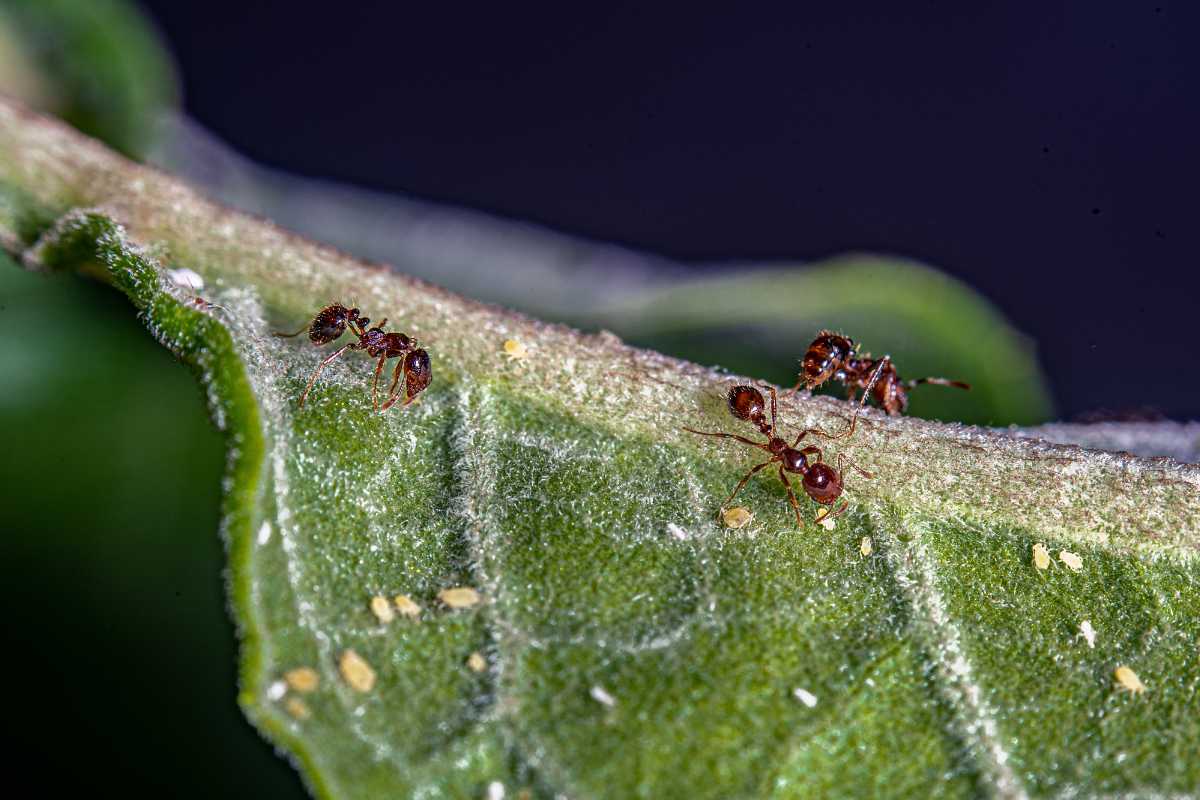
Many ants eat honeydew, a substance that aphids excrete after having sucked the sap from your plants.
Aphids are so ravenous that they take more than they can use, so the substance they excrete is extremely sweet and full of nutrients.
Worker ants take advantage of this. These ants farm aphids and protect them from predators to ensure that they have a reliable food source.
This means that the aphid population in your garden could grow exponentially in a short amount of time, damaging your plants.
2. They Can Potentially Harm Plants Through Nesting
Apart from being potentially beneficial, common ant species’ nesting habits can also be a disadvantage.
If these insects dig tunnels all around the roots of your plants, they can inhibit their growth and increase the chance of them getting sick.
3. They Can Be Quite Aggressive
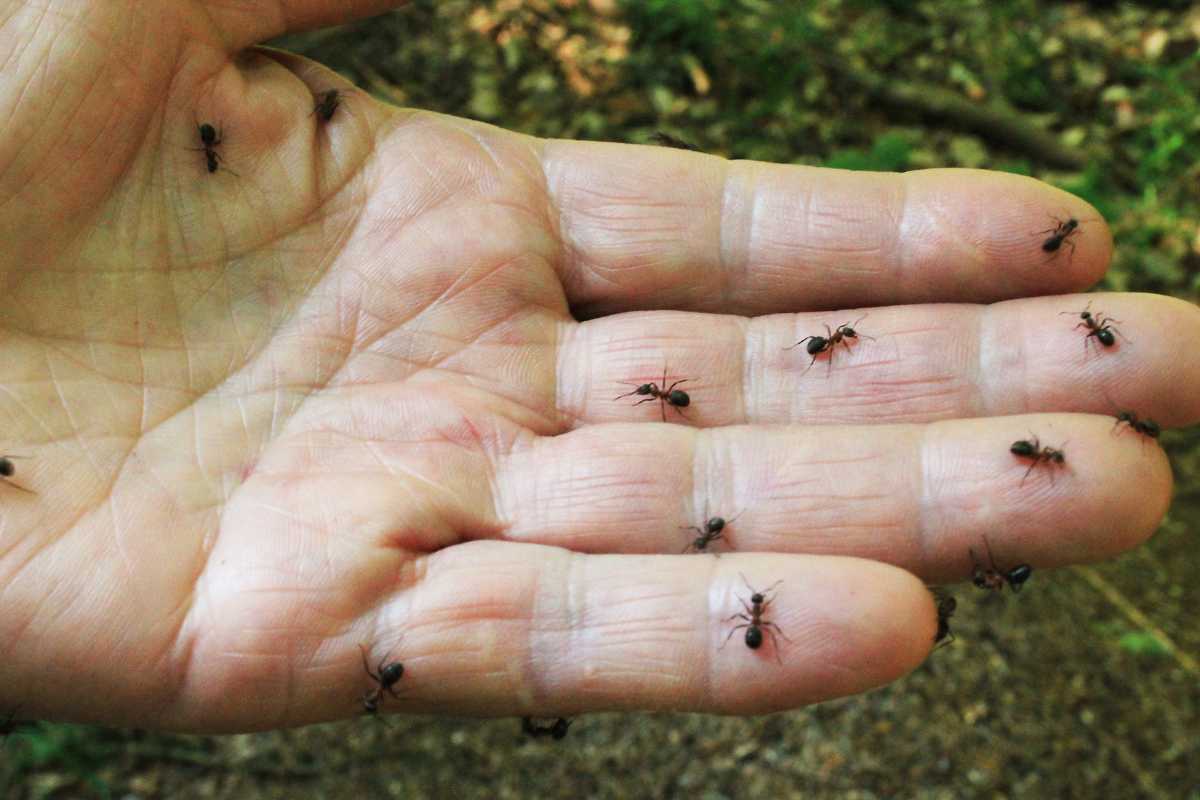
Some species of ants bite when they feel threatened, spraying an acid that can be quite unpleasant for many. The most common species that bite are farm ants and carpenter ants.
Contrary to common garden ants, stinging fire ants are also quite aggressive and their bite is venomous. If their large nests are disturbed, they react violently by swarming and biting the offender.
4. They Can Feast on Plant Leaves
Many ants eat plant leaves. This reduces the plant’s ability to photosynthesize, thus decreasing the yield.
Leafcutter ants are a bit different, in that they don’t directly feed from the leaves. Instead, they remove the plant leaves to harvest a specific type of fungus, which is their main food source.
They are able to carry twenty times their weight making it easy for them to cut and process fresh vegetation.
5. They Can Damage Wooden Structures and Trees
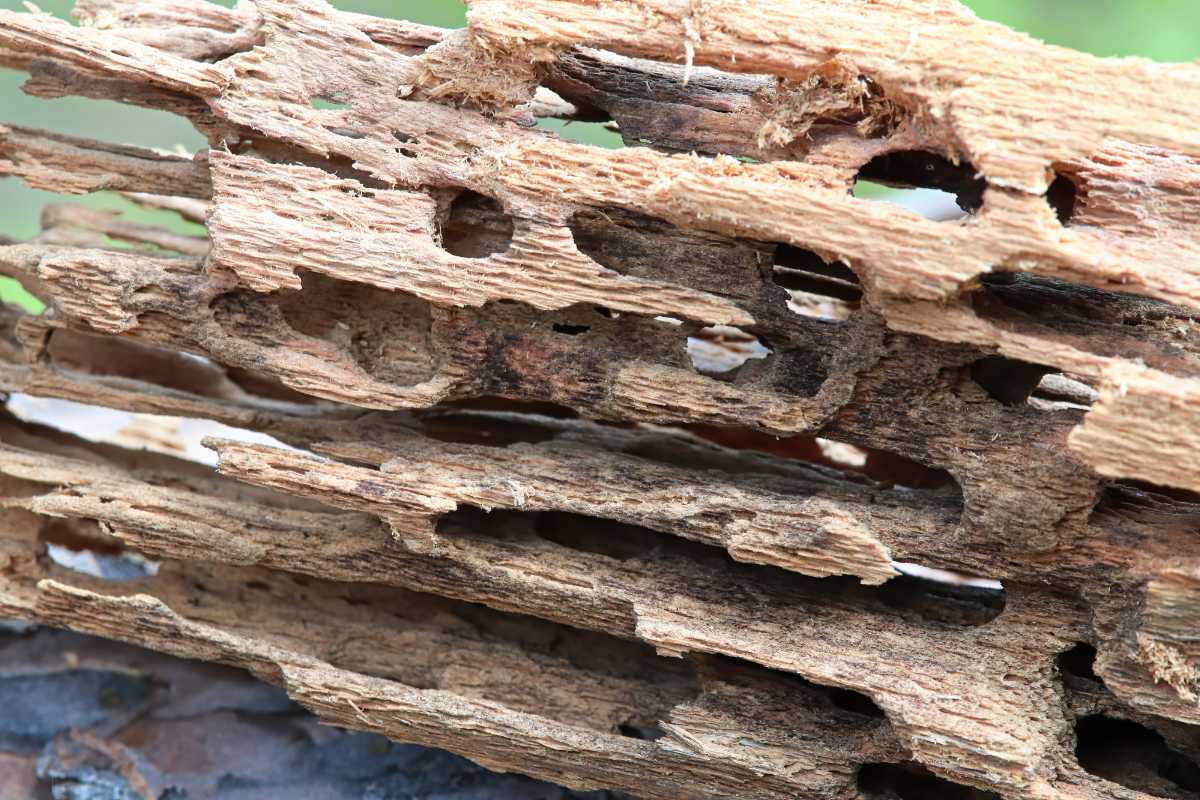
Carpenter ants dig tunnels in wooden materials, often hollowing them out and compromising their stability.
In the garden, they can damage wooden supports for plants, as well as endanger trees. They are also dangerous because if they move inside the house, they can nest there and weaken its foundations.
In the long run, big ant populations can even resort to damaging structures.
How to Kill Ants in the Garden
Here are some great ways for killing ants or repelling them, with little to no damage to the ecosystem:
1. Boiling Water
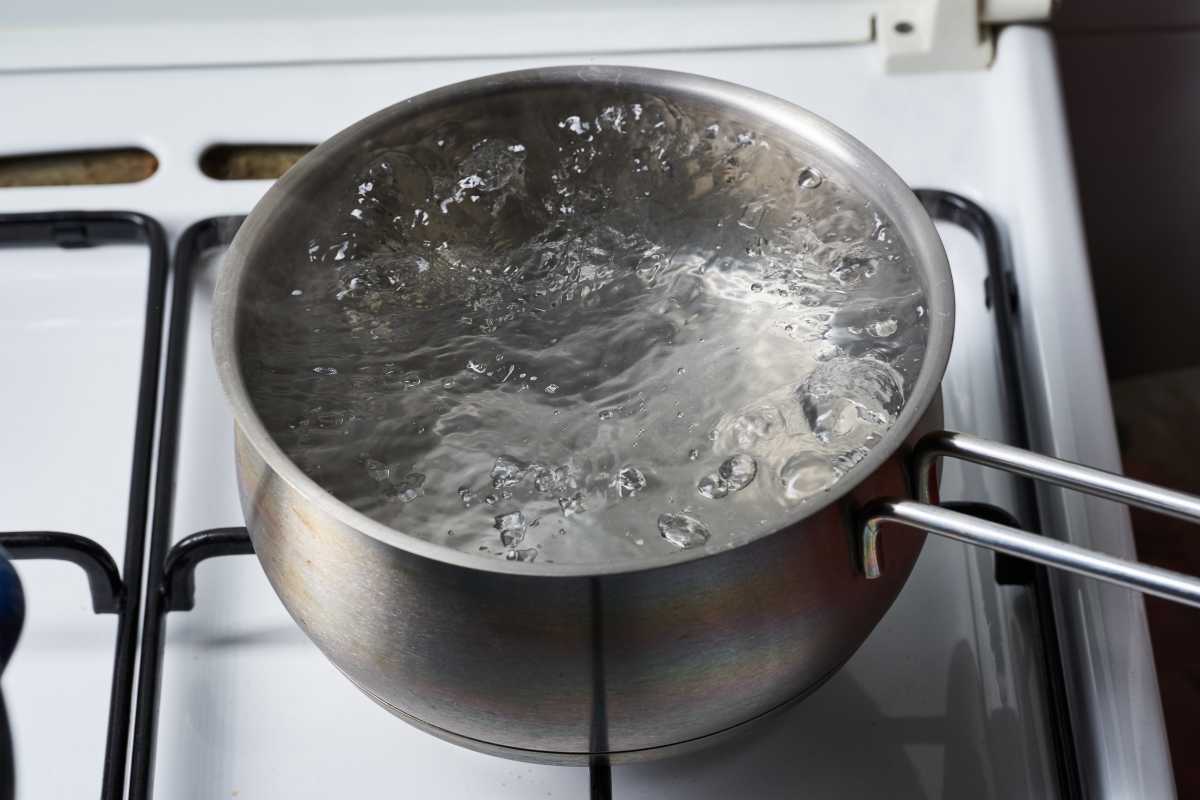
This is one of the most popular methods used by many to control ants because of its simplicity.
After identifying the location of the colony, proceed to pour boiling hot water on the anthill, preferably directly in the entrances if you can identify them. This method will kill ants on contact.
It is vital to time this method well. The evening is the perfect time to execute it as most of the ants will already be inside the colony.
You may need to do this more than once however as it does not guarantee sweeping out the whole colony in one go.
2. Oil and Dishwashing Detergent
These two substances combined are quite effective as they suffocate ants by soaking into their exoskeletons.
You may refer to the instructions below to execute this method:
1. Mix ½ teaspoon of dishwashing detergent, 1½ teaspoons of canola/olive oil, and a quart of water.
2. Find a spray bottle and pour your mixture there.
3. Spray the mixture directly on the ants or in their nest.
The result of this method is usually instant.
3. Boric Acid with Sugar
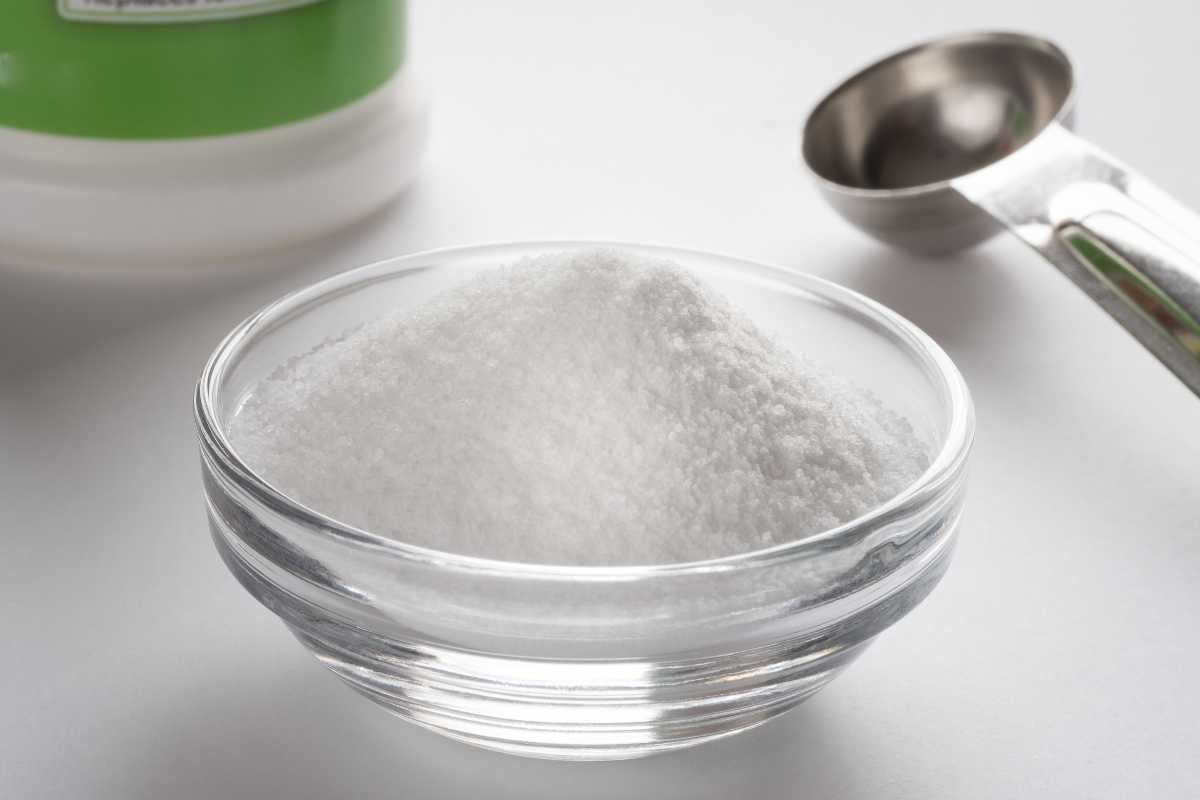
This method can also be very effective. You will need to mix sugar, which will attract ants, with boric acid, which is deadly to them. Form a paste with these two substances and spread it next to the entrances of the ant nest.
The sugar will naturally attract ants and cause them to bring some home to their queen to feast on. Once the queen falls for this trap, it will cause the end of the whole colony.
A substitute for this is cotton balls dipped and soaked in a mixture of water, boric acid, and sugar which will also reap the same effects.
Take note, however, that borax can be sickening to humans and animals so this method might not be the best one in this list.
4. Food-Grade Diatomaceous Earth (DE)
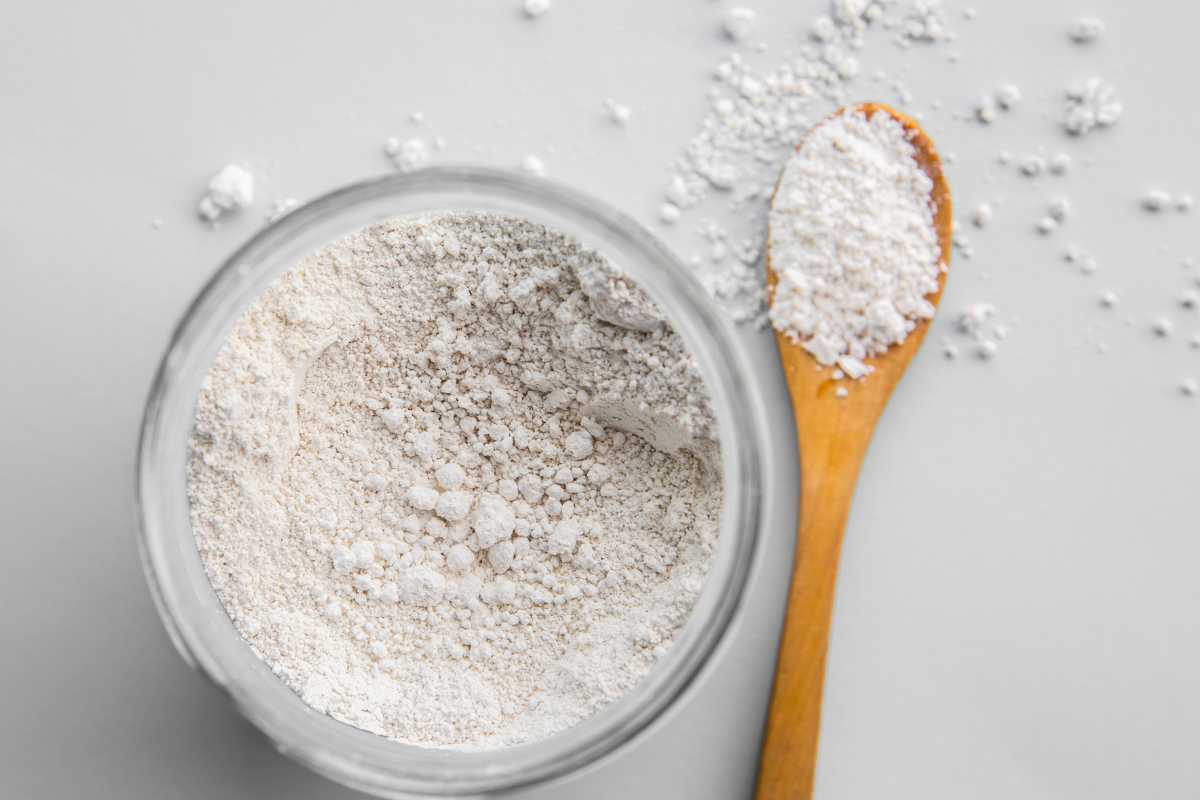
This substance is a natural pesticide that works against many insects. It’s a powder made from fossilized algae which doesn’t harm humans or garden plants.
Although in powder form already, this substance has sharp edges that can penetrate the ant’s body and cause it to dehydrate and die in a span of about two weeks.
It’s most effective if used in dry conditions, as moisture reduces its effects. Food-grade diatomaceous earth should be applied directly around the plants or in the areas where you have noticed ant pathways.
5. Professional Methods
If these natural methods don’t work, you can resort to chemical products. The most common one is ant killer poison, which can be sold in gel or powder form.
The gel works just like boric acid and sugar. Its sweetness acts as a bait so that the ants carry the poison back to the nest. This is quite effective and also has the advantage of not being harmful to other insects or plants.
Powder poisons, on the other hand, can damage the garden soil and are toxic to plants and animals.
Therefore, consider this as your last resort only when the pest population in your home is already alarming. It’s also important to avoid applying powder poisons on windy days, as they can easily disperse.
Another downside of ant poison is that it might be effective at first, but after a while, the insects build up resistance.
6. Coffee Grounds, Ground Cinnamon, and Cayenne Pepper
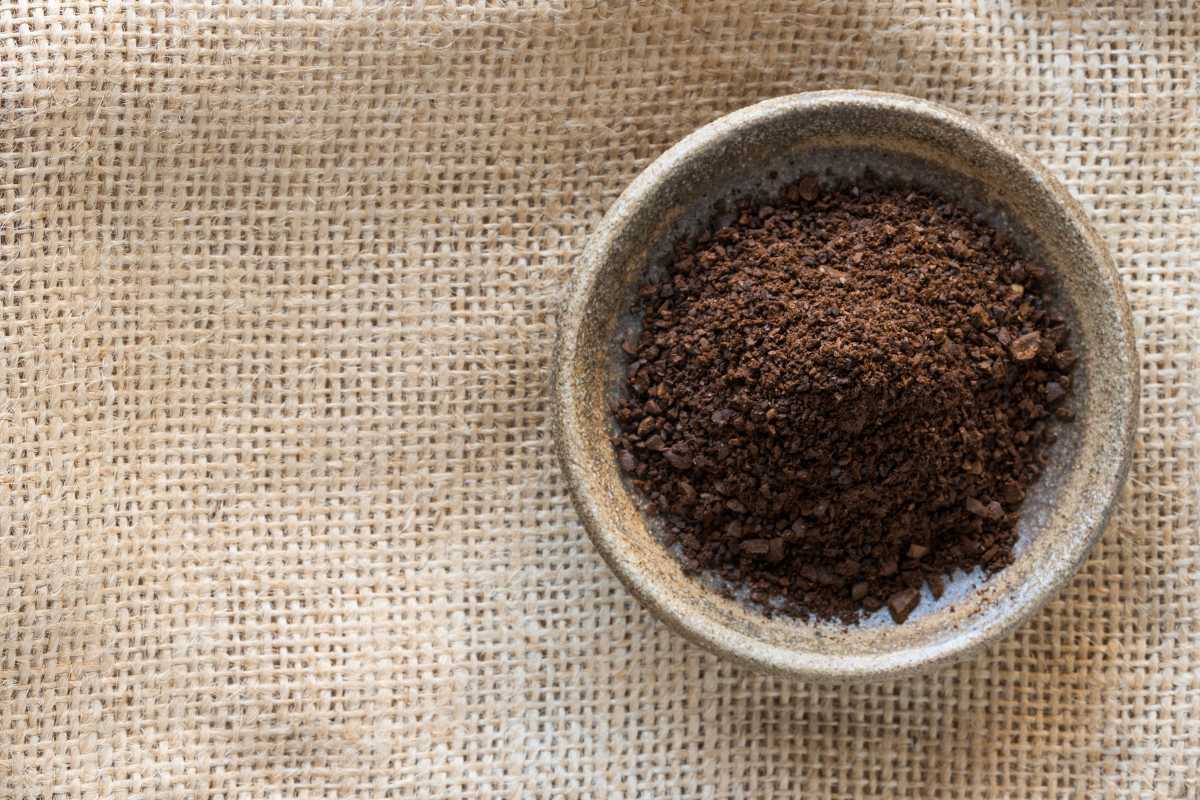
Coffee grounds are natural ant repellents. The strong smell of brewed coffee grounds will expel ants from your garden in no time.
Ground cinnamon and cayenne powder that are scattered near plants also function in the same way. These are more natural methods of preventing ant infestations.
Final Thoughts on Ants in the Garden
Ants in the garden play an important role in pest control, soil aeration, and decomposition. However, along with these benefits come some disadvantages.
Some species of ants are harmful to your plants such as the leafcutter ant. This is especially true when their population becomes too much and they start being a nuisance rather than being helpful.
When this happens, you can try some of the methods that we listed above to get rid of them. Remember to always monitor the ant activity in your area to keep your garden healthy and thriving.
Sources:

